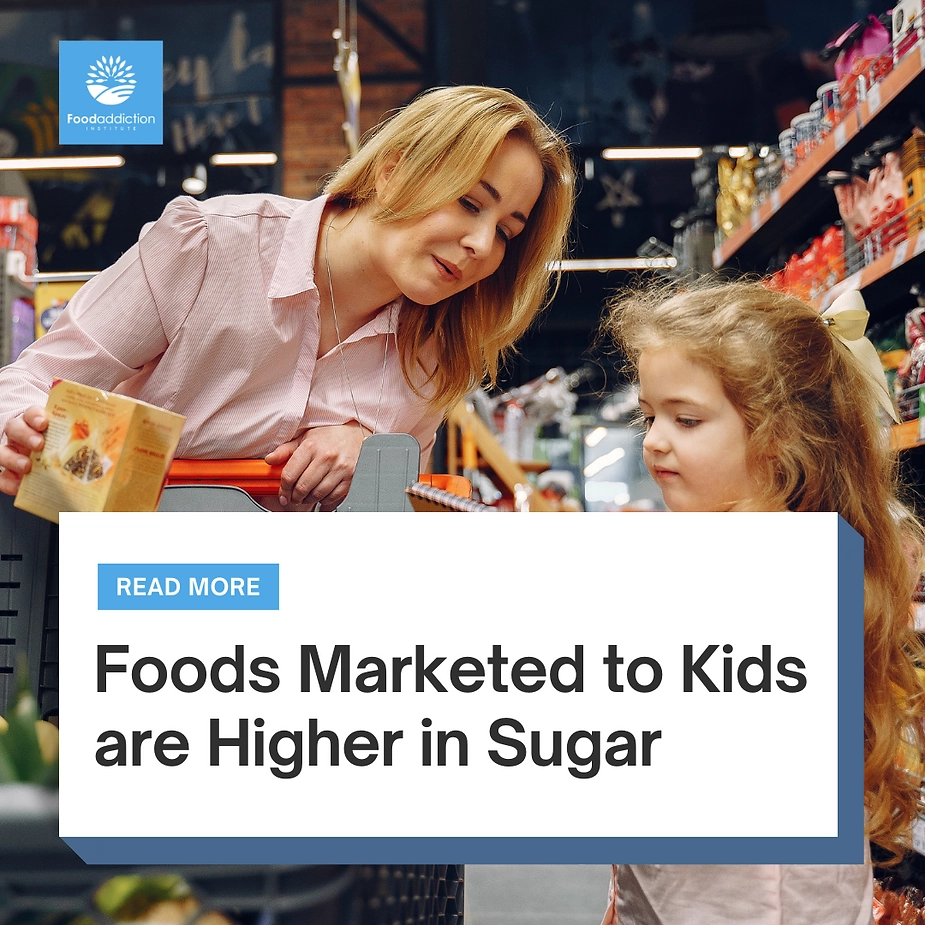
A recent study focuses on the fact that packaged foods marketed to kids are significantly higher in sugar and lower in other nutrients than other products. This is alarming because it shows how the food industry is exploiting children’s vulnerability and preferences for sweet and salty foods, and potentially contributing to their addiction to these foods.
The study, Child-appealing packaged food and beverage products in Canada–Prevalence, power, and nutritional quality, published in the journal Nutrients, analyzed over 3,000 packaged foods sold in Canada and found that those marketed to children had 36% more sugar, 10% more sodium, 8% less protein, and 9% less fiber than those marketed to adults or not marketed by age group. The researchers also found that foods marketed to children were more likely to have cartoon characters, bright colors, and claims like “fun” or “made for kids” on their packaging.
These findings are concerning because they suggest that children are being exposed to unhealthy foods that can trigger their reward system and make them crave more of these foods. This can lead to overeating, obesity, diabetes, and other health problems later in life. It can also make it harder for them to develop a healthy relationship with food and their bodies.
So what can we do as parents, caregivers, educators, and advocates to protect our children from these harmful foods?
Here are some suggestions:
- Educate ourselves and our children about the dangers of food addiction and how to recognize the signs and symptoms.
- Avoid buying packaged foods that are marketed to children and opt for fresh, whole foods instead.
- Read the nutrition labels and ingredient lists of packaged foods and look for added sugars, sodium, artificial colors, flavors, and preservatives.
- Limit the exposure of children to food advertisements on TV, social media, and other platforms.
- Support policies and initiatives that regulate the marketing of unhealthy foods to children and promote healthy eating environments in schools and communities.
By taking these steps, we can help our children develop a healthy and balanced diet that nourishes their bodies and minds, rather than leads to a progressive food addiction. We can also prevent them from becoming addicted to foods that harm their future well being.
Download the recent article by Christopher Curly for Medical News Today, May 3, 2023